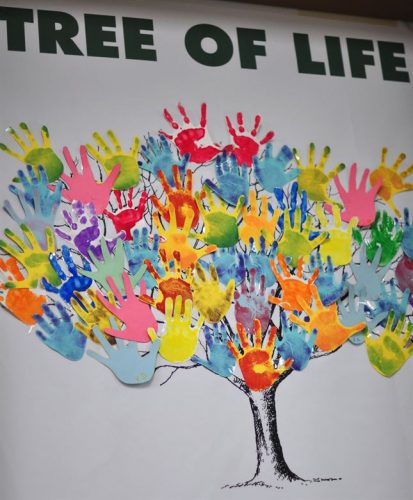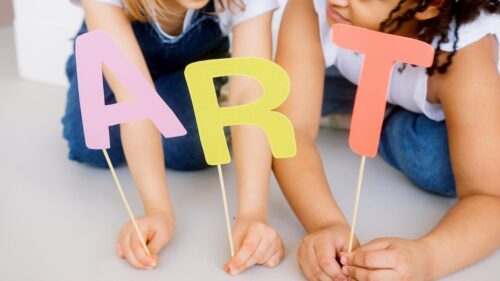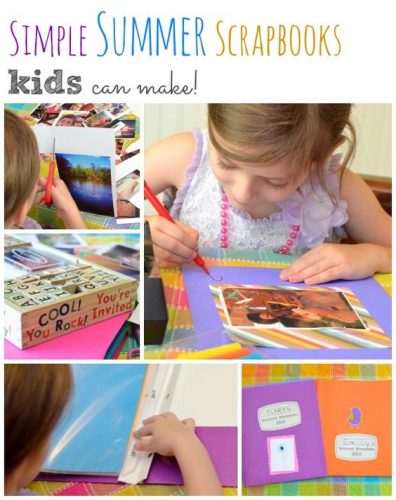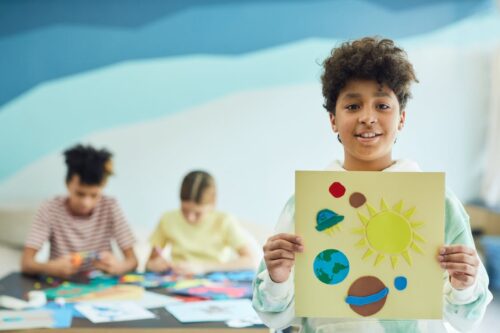Children’s Counseling Benefits
Are mental health interventions helpful for all children? What are the benefits of putting your kids in pediatric counseling services? Children’s therapy could be vital for patients going through developmental crises, and one technique incorporated is scrapbooking. Why would having scrapbooking skills be relevant in pediatric counseling?

Therapeutic Scrapbooking For Pediatric Counseling
Aside from parent-child interaction therapy, narrative counseling is considered a type of pediatric counseling.
Narrative counseling is created to help children or pediatric patients identify skills and values to efficiently brave through the countless difficulties faced.
Counseling for pediatric patients may be used as a form of mental health treatment and aims to help pediatric patients and their parents rewrite a new, fully functional narrative regarding patients through a thorough investigation of past qualities, including their mental health conditions (anxiety, depression, OCD, etc.) or mental health issues or disorders if they have any.
Counseling for pediatrics also encompasses pediatric counselors assessing children’s physical health, emotional health, problem behaviors, social interaction skills, and pediatric development as part of their child counseling services and applied behavior analysis.
They can do therapy for children (including cognitive behavioral therapy) and create a treatment plan aimed at helping children improve their well-being and help parents learn how to appropriately support their kids in confronting challenges in their daily lives.
Counseling for pediatric patients is confidential and it involves identifying and diagnosing any mental illness (autism spectrum disorders, attention deficit hyperactivity ADHD, anxiety disorders) that children may have. Working with children and adolescents require cognitive behavioral treatment.
The utilization of narrative for such counseling workshops is usually with pediatric patients or children ages 9 to 12 years old.
Narrative Treatment – A Type Of Pediatric Counseling
Scrapbooking is combined with the fundamental principles of narrative therapy to support the child with an entertaining and friendly treatment program, which could help the pediatric patient find new outlooks and coping mechanisms, alleviate mental health issues, and foster positive relationships.
Pediatric counselors, along with LCSW and other therapists of the mental health team, are tasked with reaching out to kids and children adolescents who seek counseling when it is difficult for them to accept and face emotional disorders or other challenges.
The support that they get from the treatment plan and from pediatric counseling as a whole truly makes all the difference. Working with children’s mental health is a process.
Art Therapy Is Recommended By Pediatric Counselors
Counseling for Pediatrics involves several areas, including art therapy.
Art therapy is utilized often in counseling sessions to help pediatric patients listen and understand better.
Art therapy is recommended by pediatric counseling experts to help improve a child’s behavior or improve a mental health crisis such as depression, bipolar disorder, or anxiety disorder, among others.
Of course, it would help if kids exercise daily, go to regular therapy (behavioral therapy) or counseling, and spend quality time with their parents.

Scrapbooking For Mental Health
The aspects of scrapbooking have been transformed into an intervention that is being used by caregivers and parents of pediatric cancer patients.
The primary purpose of the counseling for pediatric groups to include art therapy for these children and adolescents in Psychology is to promote encouragement and mobilize internal strengths which thereby enhance the providers’ coping abilities, benefiting the pediatric patients.

Mental health professionals like pediatric counselors or mental health professionals may also be able to address the issues of these children and adolescents better when they can identify warning signs of self-harm, depression, emotional disorders, stress, suicidal ideation, etc.
The mental health concerns of these children are tremendously at stake.
Facilitators like social workers as well as pediatric counselors provide a secure and comfortable environment for children and adolescents to verbalize stories and also share their distress, and concerns, and probably ask questions in the counseling or therapy sessions.
Previous psychological research has demonstrated that the mere presence of loved ones — a partner, their families, peers, or friends — in children can help reduce one’s subjective experience of physical pain (for instance, during a medical procedure), versus experiencing similar pain while alone. — John M. Grohol, Psy.D.

1. Scrapbooking Relaxes The Mind
Pediatric patients who experience mental health challenges could significantly benefit from scrapbooking as a part of play therapy for its mind-relaxing effects. The play therapy processes work like magic in helping me get through with health care.
Pediatric patients and adolescents who are hustling with their schools, education, extracurricular activities, and social lives (even college students) could find it hard to pause or slow down.

Experts ensure that this form of play therapy enables children to develop their skills, improve their behavior, and alleviate depression, stress, or anxiety.
Children, teens, and adolescents can truly benefit from pediatric counseling and therapy.
2. Scrapbooking Increases Self-esteem
Children, teens, and adolescents have the most vulnerable self-esteem when anxious.
They can quickly experience stress, depression, and anxiety and feel low regard for themselves.

Extensive experience in scrapbooking is a useful tool in counseling and therapy to regain a positive sense of self through the development of art skills that promote self-expression.
Realizing that beautiful things can be accomplished and can emerge into positive results, children will increase their level of self-esteem and continue to improve their mental health.
Eventually, their behavior may ultimately improve.
Why bring in photos? It’s a revealing record of old family dynamics. It helps counselors know the characters of your life. — Ryan Howes Ph.D., ABPP
3. Scrapbooking Consoles In Moments Of Grief
Children, teens, and adolescents find it difficult to process loss.
Those who have experienced or are currently going through grief can find comfort in scrapbooking as part of pediatric counseling, especially during their bereavement.

Scrapbooking conveniently incorporates different forms of play therapy interventions related to art in a simplified, concrete setup and is applied to a young child who has anxiety, stress, and depression and is in the process of overcoming trauma and grief that is related to the death of a parent.
Children and teens with autism spectrum disorder, attention deficit hyperactivity disorder, behavioral issues, and other disorders can greatly benefit from scrapbooking therapy as well.
Every art has an important role to play in our society, especially when it comes to children, kids, or adolescent who is undergoing pediatric counseling.

Developing scrapbooking skills is just one of the parts of the counseling processes that pediatricians and mental health professionals may significantly consider.
Counseling For Pediatrics is definitely beneficial for the improvement of children’s mental health.
Frequently Asked Questions
-
How Will You Know That Your Child Needs Pediatric Counseling?
- How will you know that your child needs pediatric counseling?
- What happens in pediatric counseling?
- Why would children need counseling?
- What is a child therapist called?
- What are some signs your child might need counseling?
- At what age can a child have counseling?
- What are the duties of a child counselor?
- How do I get Counseling for my child?
- What type of therapy is best for kids?
- What is the importance of child counseling?
- What are the benefits of child counseling?
- What common issues can be found in child counseling?
- What are helping activities in counseling?
- What does anxiety disorder look like in a child?





Recent Comments